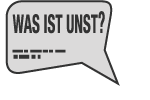A year of experiments / Mosse Lecture
2021: A year of experiments
The opening of a film school in Mosul, a retrospective at the German Academy of the Arts, a Jesus film touring from Tokyo to New York and from Sao Paulo to Matera, an avantgardistic Mozart opera, a new book and a new play – the year 2021 was full of experiments, cooperations and controversies. Among other things, the activist Jesus film “The New Gospel” was awarded the Swiss Film Prize as the most successful documentary of the year, and Milo Rau received an honorary doctorate from Ghent University.
But the highlight of the year just past was certainly the continuation of the “legendary” Congo Tribunal, a “kind of wandering research center of neo-colonialism” created in 2015 in Eastern Congo. “The question is what we do with our knowledge,” said Milo Rau in his closing speech of the 15 hours long „Kolwezi Hearings“ in the city of Kolwezi, world capital of cobalt. The tribunal had investigated the role of Swiss raw material giant Glencore. “Every testimony changes the system. And we are all at the heart of that change.”
At NTGent, plays by Angélica Lidell, Monster Truck, Luk Perceval, Alain Platel, Luanda Casella or Lara Staal, among others, were produced last year. The 2nd part of the season 21/22 will be not less packed. Rau’s “Trilogy of Private Life” continues its international tour in 2022. “Family” (Part I), stops in Lyon at the end of January, “Grief & Beauty” (Part II) is already playing today Thursday at the Théâtre Vidy in Lausanne.
„Mosse Lecture“ & “Institut für Solidarische Moderne”
How do solidarities emerge between continents, between artists and activists, between different forms of production? How do theater pieces become institutions like in “A filmschool for Mosul”, how can political and artistic agency be shared like in “The Congo Tribunal”, how can a film like „The New Gospel“ become a tool of dignity – and transform illegalized migrants into European citizens? Milo Rau will tackle these questions tonight in his Berlin Mosse Lecture (moderated by Karin Krauthausen).
The connection between politics and art will also be addressed tomorrow, Friday, January 11, at the Institut für Solidarische Moderne (Institute for Solidarity Modernity) as part of the event “Mehr Transformation wagen“ – with inputs from Harald Welzer, Milo Rau, Isabell Lorey and a discussion with Katja Kipping.


